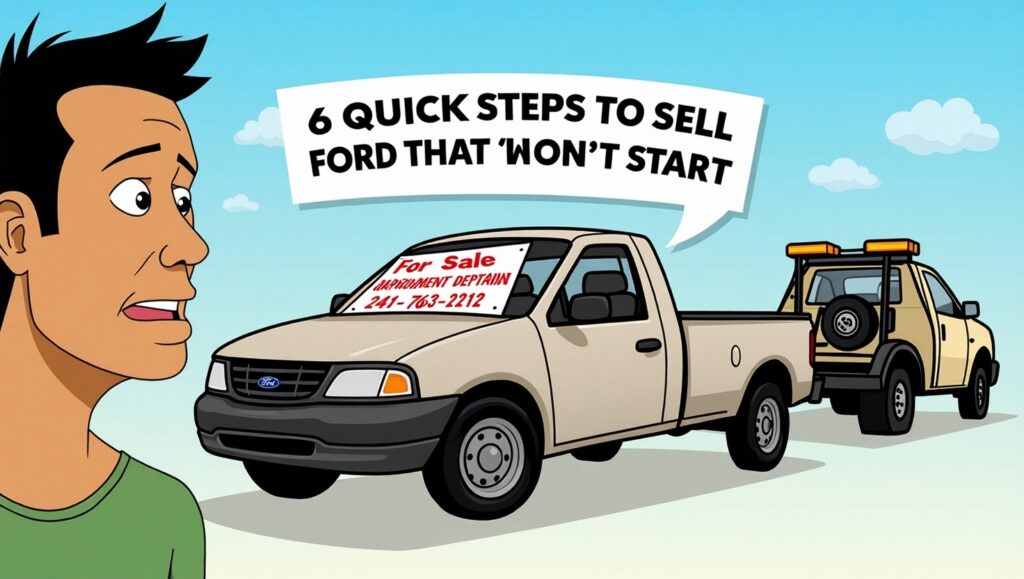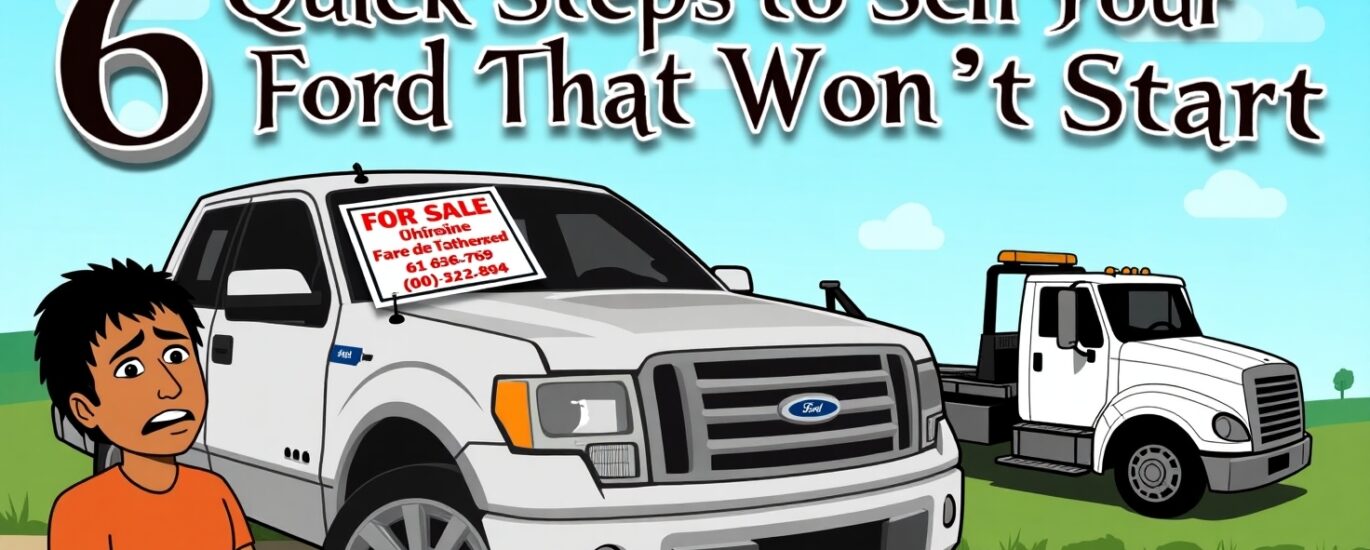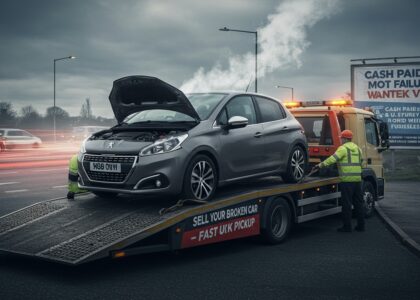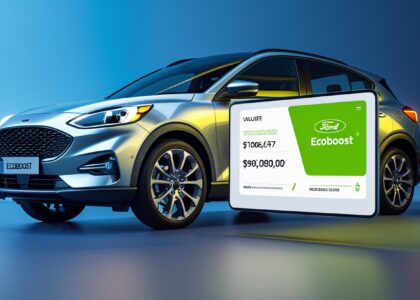Selling a Ford that refuses to start can seem challenging, but with the right approach, you can complete the process smoothly and get a fair price. Whether your car has engine trouble, electrical faults, or other issues, there are simple steps to follow that make selling easier. This guide covers six quick steps designed to help businesses, individuals, and commercial buyers understand how to sell a non-running Ford efficiently. Knowing what to do and where to find the right buyers can save time and money while avoiding unnecessary repair costs.
Assess the Condition and Problems Clearly
Before selling, it’s important to identify and describe the issues preventing your Ford from starting. Common causes include battery failure, faulty starter motors, ignition problems, or fuel system issues. Writing down symptoms and any recent repairs helps buyers understand the car’s state. This information increases buyer confidence and speeds up the sale. If you want to sell my Ford EcoBoost, being clear about its faults will attract the right buyers who specialise in non-runner vehicles or those with mechanical faults.

Find Suitable Buyers for Your Car
Locating the right buyer is crucial when selling a non-starting vehicle. Traditional dealers may be less interested in cars that don’t run, but specialised companies and private buyers can offer better deals. Search for Ford EcoBoost buyers UK who deal specifically with cars that have mechanical or electrical faults. These buyers often purchase vehicles for parts or repair projects, making them ideal candidates for your non-starting Ford. This targeted approach increases the chances of a fast and fair sale.
Get an Accurate Ford EcoBoost Car Valuation
Knowing your car’s value helps set realistic expectations before selling. Non-runner Fords typically sell for less than fully functional ones, but factors such as model year, mileage, and condition still influence price. Use online tools or consult professionals who offer Ford EcoBoost car valuation services to get an estimate. A clear valuation prevents low offers and helps you decide if repairing the car before selling is worthwhile or if selling it as-is is more practical.
Prepare the Necessary Paperwork
Even if your car doesn’t start, you must have proper documentation ready. Ensure the vehicle registration certificate (V5C), MOT history, and service records are organised. These papers reassure buyers about the car’s identity and legal status. Missing documents can delay the sale or reduce the offer amount. Keeping your paperwork in order demonstrates professionalism and makes the process smoother, whether selling to private buyers or companies.
Offer a Fair Price and Negotiate
When buyers contact you, expect some negotiation, especially since the car won’t start. Be honest about its condition and use your valuation as a basis for price discussions. Offering a fair price shows you understand the vehicle’s limitations but are open to reasonable offers. Buyers who deal regularly with broken cars may still provide good deals if they see transparency and readiness to negotiate. This approach often leads to quicker sales without unnecessary back-and-forth.
Choose a Buyer Who Offers Fast Payment and Collection
Speed and convenience are important when selling a non-running Ford. Look for companies that offer to get cash for Ford EcoBoost vehicles quickly and provide free collection services. These buyers reduce the hassle of arranging transport or repairs. Quick payment and collection make selling broken cars simpler, allowing you to avoid additional expenses or delays. Selecting a reputable buyer like this ensures a smooth and straightforward selling experience.
Selling a Ford that won’t start doesn’t have to be difficult. By clearly describing problems, finding the right buyers, valuing your car fairly, organising paperwork, negotiating wisely, and choosing fast-paying buyers, you can complete the sale efficiently. If you need a trusted partner to buy your non-runner Ford quickly and without fuss, trust Cars Wanted UK.





